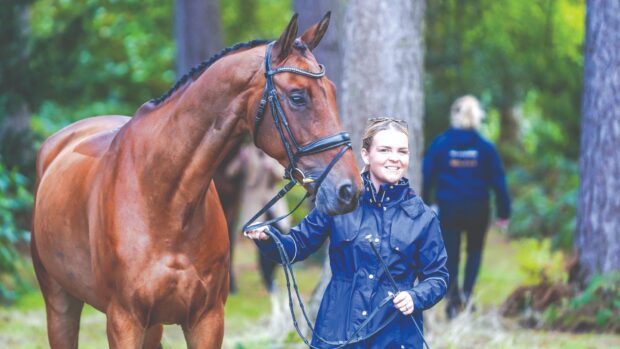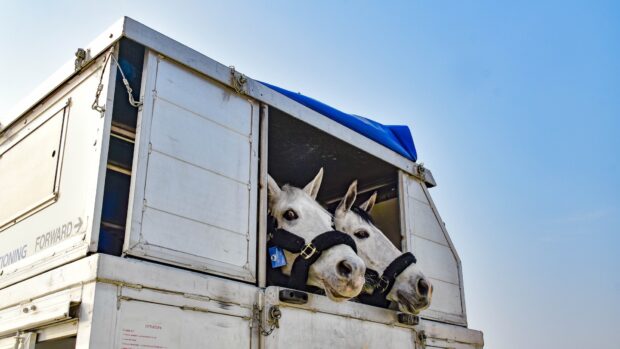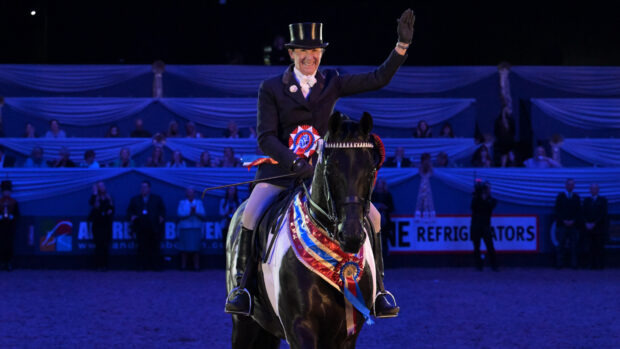Top British dressage rider and trainer Carl Hester shares his views on why unsuited combinations put horses’ welfare at risk
Recently, I attended a Zoom meeting of the International Dressage Riders Club, where the outstanding equine veterinarian Rachel Murray provided us with some enlightening facts on the subject of horse welfare.
Rachel’s experience as a sport horse clinician is jaw dropping. As well as a stellar career in practice, she has led many studies investigating sport horse training, injury and performance on behalf of sport governing bodies, and provided expertise to British Equestrian over many years, too. I’ve enjoyed Rachel’s expertise with my own horses in the past, and she has also trained and competed to grand prix. Safe to say, hers is a voice worth listening to.
Previously, I talked about engaging and proactively shaping public opinion for the future of our sport. Rachel breaks the welfare issue into two main components – the first being making an impact on horse welfare through education, and the second is educating the public to look at our sport positively and see how unbelievably well our horses are kept.
Discussing the first point was eye opening. Did you know 90% of dressage horses are competing at advanced medium level or below, with 54% at novice or below – and that’s not counting unaffiliated. So, surely our main focus should be ensuring horse welfare at all levels, not just putting the spotlight on elite horses?
As a vet, Rachel sees the impact of well-meaning but less educated training and management systems on lovely young horses. More horses are being bred, meaning more people have access to excellent raw material, but that does not mean all those riders have the skills to produce every horse, as well as giving them optimal nutrition, exercise, management and tack.
It is challenging to differentiate a horse with muscle fatigue, insufficient strength or poorly fitting tack from one who is being difficult, but making incorrect decisions can become a cumulative problem and threaten a horse’s long-term soundness.
Similarly, the wrong match can cause confusion and injury. Riders who lack confidence and turn to dressage as they find it less scary than jumping, or riders who are not physically fit enough to sit on the power, may not be best placed to ride a sparky young horse forward with confidence.
Horses try hard to please and those willing temperaments, if not strengthened, trained and managed appropriately, can put them at risk. We need to protect them. This is not criticism; it’s a call for education to be the priority, for us to listen to highly qualified practitioners like Rachel when talking about welfare.
Don’t forget to have fun
Sometimes, I forget that the reason I started competing in the first place was for sheer enjoyment. So many people feel pressured to qualify for things and justify why they ride and spend all that money, but the main reason should be getting out and having fun.
So when I took Fiona Bigwood’s lovely Fame to a local grand prix at Hartpury and had such a fun day, it dawned on me that while we all have sleepless nights before competing, we don’t always need to think about winning or what people think. For me to go to a local show and just be part of a “normal” competition was tremendous. Fiona, I’m happy to compete Fame any time you like!
Finally, how good to see some excellent examples of riding at the World Cup qualifier held in Amsterdam at the end of January. Winner Dinja van Liere showed many highlights on the bubbly stallion Hermes, Isabell Werth and the 17-year-old Emilio looked as if they were really having fun, and Ingrid Klimke is certainly on a roll with Franziskus.
Our own Lottie Fry was having just her fifth outing on the van Olsts’ Lars Van De Hoenderheide, and she said she loved her rides and had fun – perfect. So, this season, the watchwords are education and having fun, doing the sport we all love.
● How often do you compete for the sheer enjoyment of it, rather than with a focus on winning? Let us know at hhletters@futurenet.com including your name, nearest town and county, for the chance to have your views published in a future issue of Horse & Hound magazine
- This exclusive column will also be available to read in Horse & Hound magazine, on sale Thursday 9 February
You may also be interested in…

Carl Hester makes winning return to competition after nearly a year, with ‘divine’ new ride

Alan Davies on top horses’ personalities and why it’s so important to know their quirks

‘I feel humble and privileged to have met you’: final farewell to London Olympic medallist

Subscribe to Horse & Hound magazine today – and enjoy unlimited website access all year round
Horse & Hound magazine, out every Thursday, is packed with all the latest news and reports, as well as interviews, specials, nostalgia, vet and training advice. Find how you can enjoy the magazine delivered to your door every week, plus options to upgrade your subscription to access our online service that brings you breaking news and reports as well as other benefits.




